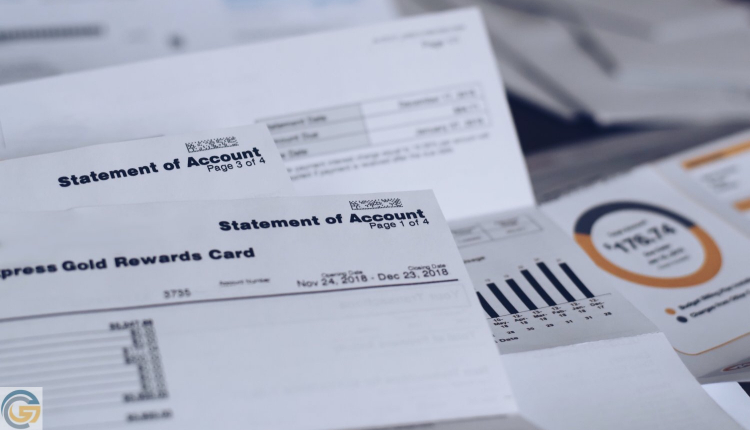How Do Mortgage Underwriters View Bank Overdrafts
This article delves into how mortgage underwriters view bank overdrafts and their implications for mortgage approval. Every financial aspect of a borrower’s life is scrutinized meticulously in mortgage lending. From credit scores to debt-to-income ratios, lenders aim to the risk associated with approving a mortgage loan. Bank overdrafts are often overlooked but significant aspects of a borrower’s financial history.
Learn more on how mortgage underwriters view bank overdrafts. Click here!
What are Bank Overdrafts?
Before delving into their impact on mortgage underwriting, let’s understand what bank overdrafts entail.
An overdraft occurs when an individual withdraws more money from their bank account than is available, resulting in a negative balance.
This can happen through ATM withdrawals, checks, electronic payments, or any other transaction that exceeds the available funds in the account. While some banks may offer overdraft protection, allowing transactions to go through despite insufficient funds, it often comes with hefty fees.
Bank Overdrafts Are Not Deal Killers
Gustan Cho Associates will accept bank overdrafts with a good letter of explanation by the borrower. However, many lenders will automatically disqualify borrowers with any overdrafts in the past 12 months:
- The way How Do Mortgage Underwriters View Bank Overdrafts is that most underwriters will deny a borrower if they have any overdrafts
- An experienced loan officer will realize on How Do Mortgage Underwriters View Bank Overdrafts and will not submit any bank statements with any bank overdrafts
- One of the main reasons for mortgage denials is due to bank overdrafts
- Due to How Do Mortgage Underwriters View Bank Overdrafts, any bank statements with overdrafts should not be submitted to processing
- Once a mortgage underwriter sees any paperwork submitted by borrowers, it is too late
- The underwriter cannot unsee it
How much money can a mortgage underwriter overdraft?
Mortgage underwriters do not have the authority to overdraft accounts. Their responsibility entails evaluating mortgage applications and gauging the risk inherent in authorizing a loan based on the borrower’s financial situation, creditworthiness, and ability to repay the loan.
Over drafting accounts is a banking function and is typically subject to the terms and conditions set by the financial institution where the account is held.
Banks may have specific overdraft policies and limits, including maximum overdraft amounts and associated fees. These limits can vary depending on the account type, the bank’s policies, and the individual circumstances of the account holder.
Can I submit a bank statement with an overdraft?
Submitting a bank statement with an overdraft is generally acceptable. Still, it depends on the specific purpose for which you’re submitting the statement. Here are a few scenarios:
- Loan or Credit Application: Lenders often request bank statements to assess your financial stability and repayment capacity when applying for a loan or credit. In this case, having an overdraft may not necessarily be a negative factor. Still, it could indicate that you’re regularly spending more than what’s available in your account. Lenders might scrutinize your overdraft usage and consider it in their decision-making process.
- Proof of Funds: If you’re using the bank statement as proof of funds for immigration purposes or visa applications, having an overdraft might raise questions about your financial stability. Immigration authorities may want to ensure you have sufficient funds to support yourself without relying on credit.
- Rental Application: Landlords or property managers may request bank statements as part of a rental application process to verify your income and financial stability. Having an overdraft may not be a significant concern in this case. Still, it’s essential to provide accurate information about your financial situation.
When submitting a bank statement with an overdraft, it’s crucial to be transparent about your financial circumstances. Suppose there’s a reasonable explanation for the overdraft, such as temporary cash flow issues or an emergency expense. In that case, you can communicate that to the relevant party. However, consistently relying on overdraft protection may indicate financial mismanagement, which could negatively impact your application or approval process. Click here to get information about approval for your application process
Documents Required To Process Mortgage Loan
There are over a dozen documents that will be required for mortgage borrowers to submit when applying for a residential mortgage loan. One of those items will be 60 days of bank statements. Other documents required are the following:
- 2 years tax returns
- Bankruptcy papers if applicable
- Child support paperwork if applicable
- Foreclosure papers if applicable
- Copy of rental agreement/lease
- Social security award letter if applicable
- Pension award statement if applicable
- Verification of employment
- Other documents which are pretty straight forward and are not scrutinized like bank statements are
Borrowers planning on applying for a mortgage loan in the very near future need to be ready on How Do Mortgage Underwriters View Bank Overdrafts during the mortgage loan underwriting process.
Overdrafts In Bank Statements
The majority of mortgage lenders will not want to see any overdrafts from a borrower for at least 12 months preceding the mortgage loan application.
- Overdrafts in bank statements are viewed extremely negatively by mortgage underwriters
- Overdrafts can, and most often times are, causes for mortgage loan denials
- The amount of the overdraft in bank statements does not matter
- The overdraft in bank statements can be as little as one dollar
- Borrowers who have a history of overdrafts need an experienced loan officer who can help on how to structure the bank statements prior to submission
- There are ways of getting around and solving the overdraft problem
How Do Mortgage Underwriters View Bank Overdrafts And Solving Multiple Overdrafts In Past 12 Months?
Multiple Overdrafts In Past 12 Months
Borrowers with multiple bank overdrafts in bank statements in the past 12 months can talk to their loan originators and go over the situation.
- On case when borrower comes to me for a mortgage loan and I see multiple overdrafts in bank statements in the past 12 months, I normally do not turn in the bank statements
- I suggest borrowers go to their bank and get 60 days of print outs of their bank statements
- Tell the teller that they are applying for a mortgage and get 50 days of bank printouts and get it signed, dated, and stamped by the bank teller
- Most lenders want to see 60 days of bank statements
- Borrowers who do not have overdrafts in the past 60 days but have had overdrafts in the past 12 months the actual bank statements will reflect the year to date overdraft fees
- Bank printouts do not reflect year-to-date overdraft fees columns
How Do Mortgage Underwriters View Bank Overdrafts Versus Bank Printouts?
The year to date overdraft fees automatically sets up a red flag to the underwriter:
- The underwriter will be questioning the year to date overdraft fees which in turn borrowers are required to provide additional bank statements
- However, if a borrower only provide two months worth of bank statement print outs of bank statements that is signed, dated, and stamped by the bank teller, the year to date overdraft fees are not posted on bank statement printouts
- This practice is not illegal because whatever the underwriter does not ask for borrowers do not have to provide
- There is no question on the mortgage application where they ask whether the borrower had a bank overdraft in the past year
- However, once borrower provide actual bank statements and the underwriter catches the overdraft fees on the bank statements borrower cannot retract the bank statements the underwriter has and turn in bank statement print outs
- Once the underwriter has seen it, it is too late
- An experienced mortgage loan officer will catch this during processing before it gets submitted to underwriting
Frequently Asked Questions (FAQs)
- How do mortgage underwriters view bank overdrafts?
Mortgage underwriters view bank overdrafts as a potential risk factor indicating financial instability or mismanagement. - Do bank overdrafts automatically disqualify me from getting a mortgage?
Not necessarily. While overdrafts raise concerns, they alone may not disqualify you. Underwriters consider various factors, including the frequency and severity of overdrafts, your overall financial situation, and the explanations provided. - How can I mitigate the impact of bank overdrafts on my mortgage application?
You can enhance your prospects by showcasing fiscal prudence, maintaining a positive credit history, explaining past overdrafts, and saving for a larger down payment. - How should I address overdrafts during the mortgage application process?
Be upfront about any overdrafts and provide explanations to the underwriter. Offer context, such as unexpected expenses or temporary financial hardships, to help them understand your situation better. - Will overdrafts affect my mortgage interest rate?
Overdrafts may not directly impact your interest rate, but they could influence the lender’s perception of your credit risk, which might indirectly affect the terms of your mortgage.
Qualifying For A Mortgage With A Direct Lender With No Overlays
Borrowers who need to qualify for a mortgage with a direct lender with no mortgage lender overlays on government and conventional loans, please contact us at Gustan Cho Associates at 800-900-8569 or text us for faster response. You can also email us at gcho@gustancho.com. We are available 7 days a week, evenings, weekends, and holidays.







